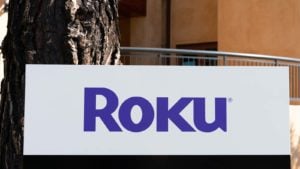The global digital revolution is upon us, firing on all cylinders, and it won’t slow anytime soon. That means it’s time to buy and hold digital ad stocks for the long haul.
The narrative is pretty easy to follow. Consumers everywhere are plugged into the internet all the time. They spend hours on social media platforms, watching videos on their phones, listening to music through streaming sites, messaging friends, so on and so forth. The more time consumers spend in those digital channels, the less time they spend in traditional channels. Ad dollars always follow engagement, so as engagement increasingly pivots from traditional to digital, so will ad dollars.
The result? Ad dollar inflows into the digital ad industry will be big, both today and for the next several years.
The numbers are pretty easy to digest here, too. According to eMarketer, digital ad spend accounted for about 46% of total media ad spend globally in 2018, with total digital ad spend up 21% year over year. By 2023, digital ad spend is expected to account for over 60% of total media ad spend, implying that digital ad spend is expected to grow at a compounded annual growth rate between 2018 and 2023 of ~13%. This is a high-margin industry, too, since running a website comes with minimal costs relative to the ad revenue one can generate from a website with scale.
Broadly, then, digital ad stocks largely project as high-margin, double-digit revenue growers over the next few years. That growth profile implies that digital ad stocks should, for the most part, be long-term winners.
With that in mind, let’s take a look a five digital ad stocks to buy for the long term.
Digital Ad Stocks to Buy for the Long Haul: Facebook (FB)

The Short:
Global social media company Facebook (NASDAQ:FB) owns four of the most widely used digital platforms in the world, and is only monetizing two of them, implying tremendous ad growth potential in the long run. This sustained big ad revenue growth should couple with rebounding margins to produce big profit growth over the next few years, the likes of which isn’t priced into FB stock today.
The Long:
When it comes to digital ad stocks, the best one to buy and hold for the long haul is Facebook.
The logic here is very simple. Facebook owns Facebook (the equivalent of the internet’s town hall), Instagram (the world’s most popular photo-sharing app in a visually dominated world), Messenger (one of the world’s most popular digital communication apps) and WhatsApp (another one of the world’s most popular digital communications apps). All together, then, Facebook owns four of the most popular, widely used digital platforms in the world.
More than that, the world is addicted to these platforms. Facebook had a huge public crisis in 2018 with the Cambridge Analytica scandal. In the wake of that public crisis, no one quit Facebook. Instead, the amount of people using Facebook, Instagram, Messenger and/or WhatsApp once a day, went up … a lot.
Because users remain highly engaged in the Facebook ecosystem, ad dollars will continue to flow into the ecosystem in pursuit of that unparalleled engagement. Of note, Facebook is only monetizing two of its platforms with ads. Messenger and WhatsApp have yet to be populated with ads all over. Consequently, Facebook has tons of real estate left with which to draw in even more ad dollars and grow share even further in the digital ad market.
Margins are also rebounding as data-security investments are phasing out. Net net, Facebook projects as a steady 15-20% revenue grower over the next few years, with significant upside margin drivers. That should easily drive 20-25% profit growth per year, and that simply isn’t priced into FB stock, which trades at just 23-times forward earnings today.
Alphabet (GOOG)

The Short:
Global internet giant Alphabet (NASDAQ:GOOG, NASDAQ:GOOGL) provides the backbone of the internet everywhere expect China through Google Search. It owns the most popular video website in the world with YouTube. And it is behind various other widely used internet utilities, like Gmail, Google Maps, Google Play, so on and so forth. Behind these core platforms, Alphabet will maintain leadership in the global digital ad market for the next several years, which will help power revenues, profits and the stock higher at a steady pace.
The Long:
When it comes to the global digital ad market, the largely unchallenged global leader is Alphabet. That projects to remain true for the foreseeable future, implying that GOOG stock should continue to grind higher over the next few years behind continued strength in the digital ad business.
Google Search is the backbone of the internet. Without search, you don’t really have an internet. Of note, Alphabet doesn’t have any competition in the digital search space, and Google has become so ingrained into the internet ecosystem that it’s tough to see the search engine losing any dominance over the next few years. Consequently, as ad dollars continue to flow into the digital channel, a healthy portion of those dollars will continue to be allocated toward Google Search.
Meanwhile, Alphabet also owns YouTube, which is the most used social internet platform in the world, not owned by Facebook. Importantly, YouTube is a video platform, and video is a big growth vertical in the digital arena. Consequently, YouTube should see out-sized engagement and ad dollar growth over the next few years.
Stable Google Search ad growth plus continued big ad growth at YouTube should keep Alphabet atop the global digital ad market for the foreseeable future. If so, then Alphabet’s revenue and profit growth rates will remain healthy. Healthy growth therein should keep GOOG stock on a nice long-term uptrend.
The Trade Desk (TTD)

The Short:
Programmatic advertising — the usage of algorithms, data and machines to optimize ad transaction processes — is the future of digital advertising. This growth narrative is still in its first few innings. The Trade Desk (NASDAQ:TTD) is at the epicenter of the programmatic advertising market, as such, it projects as a big revenue and profit grower for a lot longer. All this growth will inevitably drive TTD stock higher.
The Long:
When it comes to hyper-growth stocks in the digital ad market, few look as good for the long term as programmatic advertising leader The Trade Desk.
Taking a step back, programmatic advertising is the future of advertising. Broadly speaking, data is being used across a great variety of industries to automate and optimize processes — think self-checkout kiosks, or self-driving. Programmatic advertising is a part of this bigger movement. It’s the result of the big data, AI and machine learning trends converging on the ad industry, to automate and optimize ad transaction processes so that they are cheaper and more efficient.
Eventually, all ads will be transacted programmatically. Right now, only a small portion of the several hundred billion dollar global ad market is transacted programmatically. The implication? The programmatic ad market projects to grow at a big rate for the next several years.
The Trade Desk is at the epicenter of this market. According to Gartner, they are the leaders in the ad tech market. Because of this, as the programmatic advertising market grows by leaps and bounds over the next few years, so will The Trade Desk. This big growth will ultimately keep TTD stock on a long term winning trajectory.
Pinterest (PINS)

The Short:
Social media platform Pinterest (NYSE:PINS) offers a unique and differentiated value prop to consumers and advertisers in a crowded social media and digital ad landscape. As such, the platform will continue to add users and attract advertisers in bulk over the next few years. This will lead to continued healthy revenue and profit growth at Pinterest, the sum of which is not priced into PINS stock today.
The Long:
Freshly public Pinterest has gone through a roller coaster ride ever since its IPO. But, investors shouldn’t let this volatility discourage them. The fundamentals here remain favorable, and in the long run, PINS stock will emerge as a winner.
The long-term bull thesis on PINS stock breaks into two parts. First, Pinterest is a unique and differentiated social media platform which will continue to add users at a healthy pace over the next few years. The important part here is that the use-case for Pinterest — design and project inspiration — has very little overlap with the use-cases for other social media platforms. This differentiation means people have a reason to use Pinterest over other platforms. Because of this, the company should keep adding users at a healthy pace for a lot longer.
Second, Pinterest is a unique and differentiated digital ad player that will grow share in the digital ad market. Long story short, the use-case for Pinterest means that consumers are: 1) looking for something to do or see on Pinterest and 2) going to Pinterest with the intent to act. That combination means that ads will be additive to the consumer experience — not disruptive — and that consumers are more likely to engage with those ads. Given this, advertisers should continue to flock toward Pinterest’s ad tools over the next few years, and as they do, revenue growth rates here will remain vigorous.
Net net, Pinterest projects as a big user growth and revenue growth platform in the long run. Because digital ad businesses run at high margins, this big user and revenue growth will translate into big profit growth. This big profit growth should push PINS stock higher long term, especially from today’s depressed levels.
Roku (ROKU)

The Short:
Consumers are rapidly pivoting from linear to digital TV consumption, and this pivot is: 1) bringing more and more consumers onto the Roku (NASDAQ:ROKU) platform, and 2) pulling more and more ad dollars from linear TV channels, into the Roku ecosystem. This linear to digital TV consumption shift will persist for the foreseeable future. As it does, Roku’s revenues, profits and stock price will rock higher.
The Long:
Much like The Trade Desk, Roku is another hyper-growth stock in the digital ad world that should leverage secular growth tailwinds to surge higher in the long term.
Over at The Trade Desk, the secular growth tailwinds stem from a pivot from traditional to programmatic advertising. For Roku, the secular growth tailwinds stem from a pivot from linear TV consumption, to digital TV consumption. That is, due to the financial and convenience advantages that streaming platforms offer over cable television, consumers are increasingly spending more time in the digital TV channel, and less time in the linear TV channel.
As stated earlier, ad dollars follow engagement. If engagement is pivoting from the linear to digital TV channel, ad dollars will follow suit. They already are, and they will continue to do so with great pace over the next several years.
Many of those ad dollars will make their way into the Roku ecosystem, mostly because Roku is establishing itself as a centralized cable box of the streaming TV world. That is, the streaming TV world has a lot of supply (tons of streaming services) and a lot of demand (tons of streaming subscribers), and Roku connects all that supply to all that demand in a friction-less, bias-less and streamlined manner.
Because of this, as the streaming TV world grows, the amount of subs in that world using Roku to access their favorite streaming services, will grow, too. This will power huge ad revenue growth at Roku. All those revenues are high-margin. Thus, in the long run, Roku projects as a huge profit grower — and huge profit growth should be enough to keep this stock on a winning path.
As of this writing, Luke Lango was long FB, TTD and PINS.
